We have a guest blog this week from the incredibly talented and unique Harlequin Grim, who writes about atheism and it’s effect on mental health and writing.

Atheism and writing
Leaving Catholicism came at no small cost, and still the decision afforded, and continues to afford, an exponential return in the way of happiness, contentment, and the perpetual breaking down of mental and psychological boundaries in my daily life.
Having been an atheist for more than a handful of years now, the word ‘spirituality’ has a loose position in my head. It exists in a culture and a sphere of thinking that I touch so little that, whenever I use it, it is often to approach common ground with others whom practice some faith or another.
The word has broken down to mean a collection phenomena that is clearly distinguishable from experience to experience. My spirituality encompasses moments of introspection, of silence away from cities, of immersion in nature, of human connection, intense exertion, physical, artistic, or otherwise. This is a small but, of course, incomplete list. So when I say that writing became my ‘spirituality’ this is my attempt at being both concise yet illustrative.
My connection to the Catholic god was a familial one. I spoke to him on a daily basis. I prayed in gratitude in my happiest moments and begged for reprieve when in emotional or even physical pain. Church doctrine impacted, if not all, almost nearly all of my thoughts. Even the barest consideration to question outside their parameters, or even the parameters themselves, would cause my heart-rate to rise. No, this is not exaggeration. Damnation loomed at the back of my mind at all times. More pressingly, a form of punishment in the mortal realm seemed to be the more constant threat.
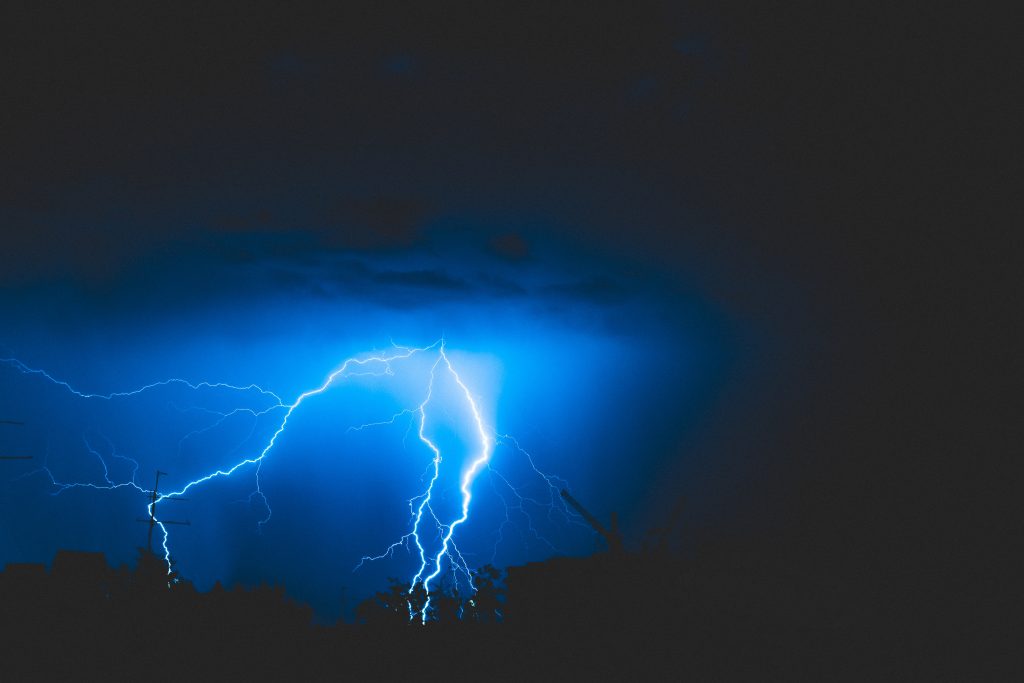
Damnation loomed at the back of my mind at all times.
Needless to say, I am still slightly surprised to have not been crippled, struck by lightning, or otherwise slapped by divine retribution for the grievances I’ve since committed.
We are walking through this hallway of horrors because when somebody says, “I grew up religious” that can mean anything from saying a family prayer once a year around the Thanksgiving turkey or attending Eucharistic Mass every Sunday for many years. I was the latter.
This is all to say that there was a gigantic, psychological barrier between me and contentment when, around the age of eleven, I began to have serious doubts about the way my head was run by god. When I did eventually commit myself to the conviction that there was little likelihood of the religion’s veracity, my world imploded—not really. That was what shook me to my core.
Nothing happened.
Reality didn’t change—my perception did.
Now I was alone.
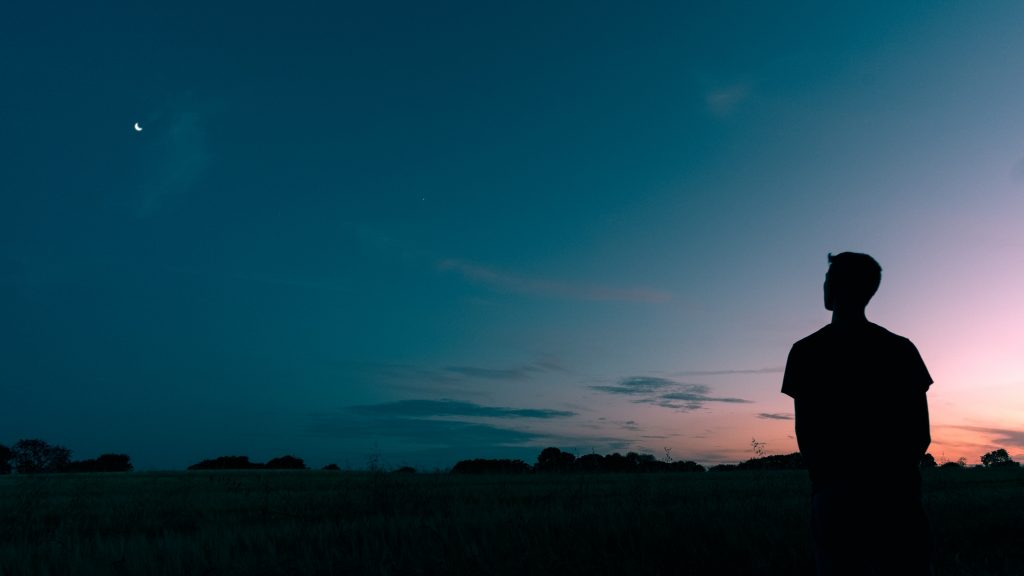
Now I was alone.
There was nobody in my thoughts anymore. I had to face the existence of not being watched over at all times. Of living a life that did not have a preset plan by a loving creator. It quickly became me, the wind in my ears, and the muffled thoughts starting to build up the walls I’d just obliterated with several tons of philosophical TNT.
I cried for many, many nights. I was a child, after all; it was singularly the most terrifying experience of my upbringing—to hide a secret that would cause colossal consequences to the only family around. Of course, this would become almost inconsequential as there were much, much bigger demons to face.
There was a gaping silence where that voice used to be. Infinite questions without answers.
What came instead of god’s thoughts and chastisements were characters. Characters that arrived with vivid pasts, emotions, and for the final, saving grace. The grand finale. The pièce de résistance. The Big BANG! that has since filled me with an indomitable fervour.
Stories.
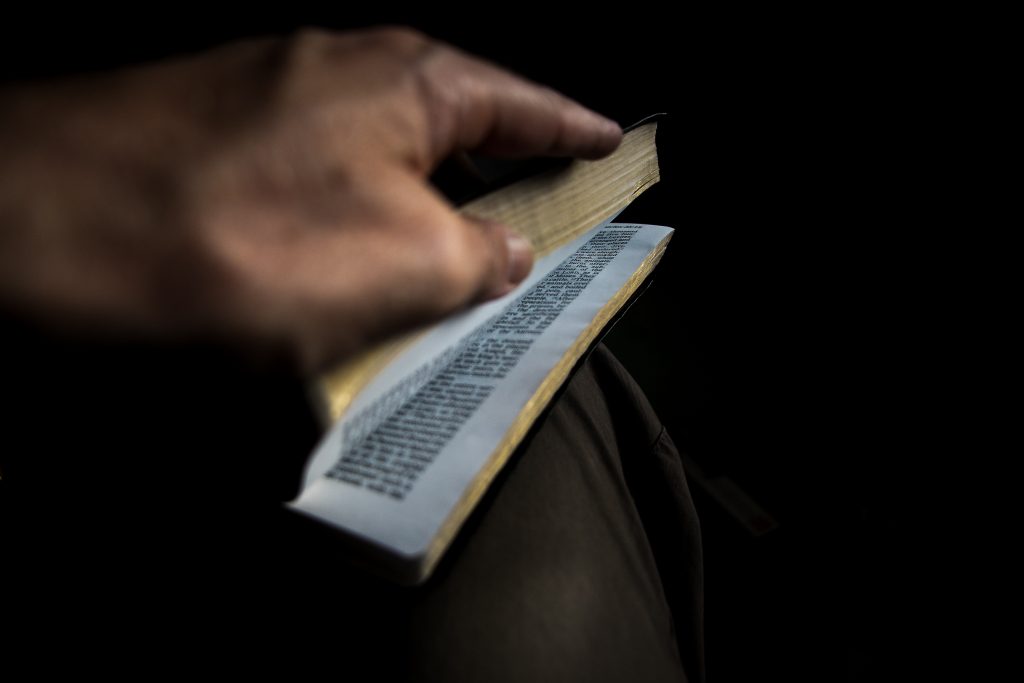
With atheism came stories.
Writing took the place of religion’s clever mechanism to fill the all-important archetypes of an individual’s path. It offered a sense of development, purpose, a dialogue with oneself, a way to digest the past and, most importantly, to forge the future while making substance of the present.
There is a misconception about atheism. Some believe that, if there is no god, no book to set forth an absolute morality, then this life is meaningless by definition and thusly no lines can be drawn in the sand about what constitutes good and evil. Moreover, how do you derive purpose from a life where morality is subjective and meaning is not stamped onto your soul according to a prophesying text?

With atheism lines can be drawn in the sand about what constitutes good and evil.
Being an atheist doesn’t mean the magic of life evaporates. Finding meaning in chaos is magic enough; it is full of coincidence, consequence, suffering and bliss. There need not be anything more than what is here, and I am more than happy with that.
After the shock of ripping off the bandage wore off, the skies were illuminated. Everything became several shades brighter. My newfound vocation ignited my veins with a resolve to pursue ideals. To be somebody who could inspire others.
After the first few months of trembling loneliness and fear in a big, vast universe that had not a speck of care for me, I was ecstatic to be alive in a way I never had before. It wasn’t loneliness; it was introspection. It wasn’t existentialism; it was a challenge. It wasn’t god; it was chaos.
It made virtue, morality, compassion, and love all that sweeter because they were choices—to reason and decide upon, not a doctrine or a passage to follow. It was here and it was happening every moment.
Writing became a means by which to synthesize experiences and struggles. It acted as both a discipline and therapy. Something that could be sacred and, thusly, a vocation to devote oneself to. Much like a religious person’s habit of maintaining a ‘relationship with god’, I became dedicated to filling up blank pages on a daily basis.
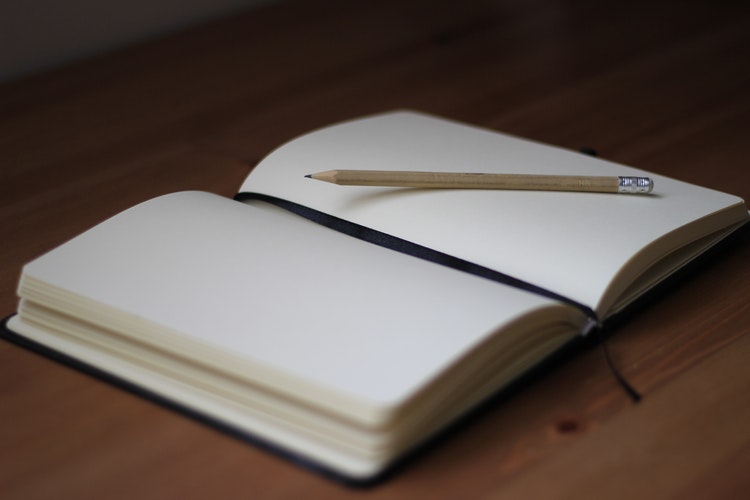
I became dedicated to filling up blank pages on a daily basis.
There, I could find my place in chaos.
There, I touch something divine. Something immortal.
When the thrill of exploring new philosophies began to ebb and my perspectives took on a new status quo, of course, common difficulties arose. Mental illness, depression, stress, and for a very brief period, suicidal thoughts.
Even then, I saw art and writing as my overall purpose—a ideology worth bleeding for. Suffering quickly became not a trial to endure but a friend to learn from. A shadow that made lights brighter, to show me how to vivify nothingness even when I lacked hope and inspiration. Ultimately, it seemed to push me to be a vessel for inspiration and, with some luck, a medium for others to find their own.
In this way, I have always had something to live for. The longer I live, the more reasons I collect.
There is no question. The origin of all this is partially due to the life-giving aspiration and inspiration of art’s eternal flame. Through it, I have met the most inspirational, courageous people and even found a person with which to share my entire life. Through it, I was able to abandon one world and live in another. Leave comfort and walk through some of the coldest winds into a life that feels, even at its worst, like a kind of odd heaven. Every night I fall asleep grateful for the life I have, trying to ignore the grief of it all passing.
It is only sweeter with the acceptance that what is beyond it is sheer mystery. The nature of life’s brevity makes every word that much more dire. Every beat more noteworthy. Each moment more precious. You see, no matter how you look at it, atheists don’t have a heaven to look forward to, so we have to weave gold out of each moment. At least, that’s how I see it.
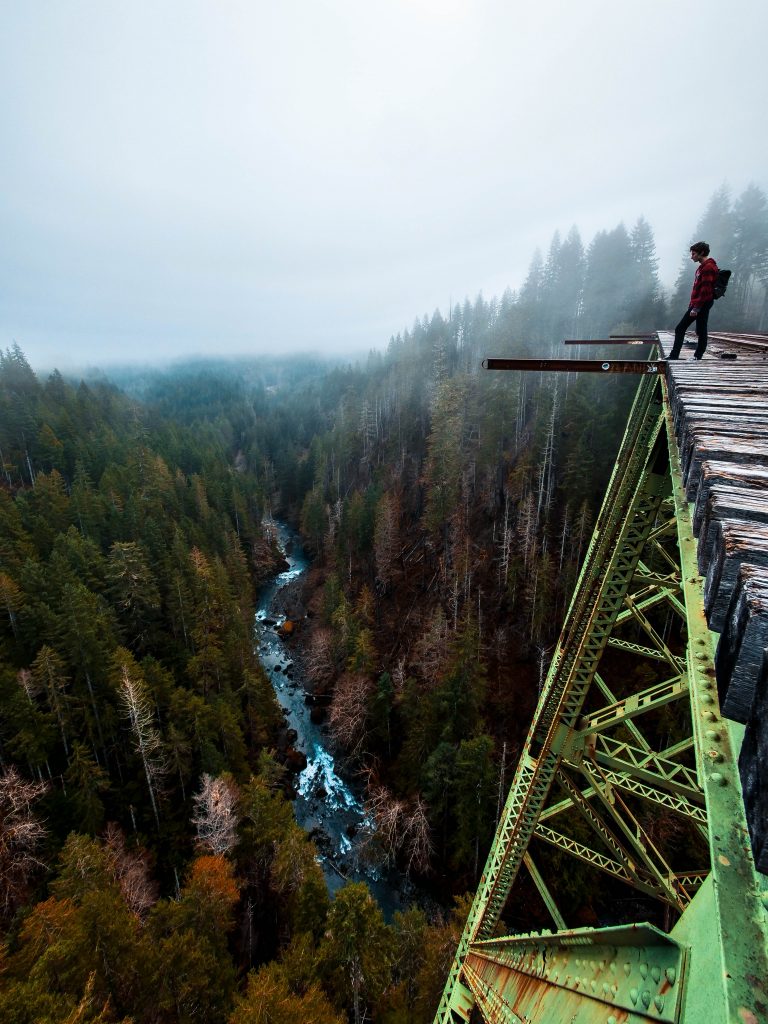
Atheists don’t have a heaven to look forward to, so we have to weave gold out of each moment.
For someone who spends most of his days imagining things, it has become increasingly difficult to imagine a life without writing. It would come with no small amount of agony to tear away from it, at the very least.
Now, it has since become apparent that writing was a bridge from one form of absolutist thinking to broader horizons. It has since demonstrated to me the merit of words’ ability to incite action, critical thinking, human connection and all the machinations behind our cascading impacts with one another. My purpose has extended from blank pages to people.
It doesn’t need to have an inherent, greater purpose.
It doesn’t need to make immediate sense.
It doesn’t need to be happy, easy, or perfect.
It doesn’t need to conform to a clear ideology or philosophy.
But, so long as we exist, life can and does have all of those qualities at various times. How we prefer to find it, or indeed what we find, needn’t be what decides our fate. As long as we are deciding it for ourselves, we may find all and more than what we are searching for.
Utterly alone beneath innumerable stars, a sniffling eleven-year-old Harlequin wonders: “So, where do I begin?”
We can start with thoughts.
Then, with some courage, we can progress to words.
– Harlequin Grim, Writer and Poet
Thanks to Harlequin for this excellent blog piece. You can learn more about him and read more of his beautiful words on his website here.
Please follow and like us:
We have a guest blog this week from the incredibly talented and unique Harlequin Grim, who writes about atheism and it’s effect on mental health and writing.
Atheism and writing
Leaving Catholicism came at no small cost, and still the decision afforded, and continues to afford, an exponential return in the way of happiness, contentment, and the perpetual breaking down of mental and psychological boundaries in my daily life.
Having been an atheist for more than a handful of years now, the word ‘spirituality’ has a loose position in my head. It exists in a culture and a sphere of thinking that I touch so little that, whenever I use it, it is often to approach common ground with others whom practice some faith or another.
The word has broken down to mean a collection phenomena that is clearly distinguishable from experience to experience. My spirituality encompasses moments of introspection, of silence away from cities, of immersion in nature, of human connection, intense exertion, physical, artistic, or otherwise. This is a small but, of course, incomplete list. So when I say that writing became my ‘spirituality’ this is my attempt at being both concise yet illustrative.
My connection to the Catholic god was a familial one. I spoke to him on a daily basis. I prayed in gratitude in my happiest moments and begged for reprieve when in emotional or even physical pain. Church doctrine impacted, if not all, almost nearly all of my thoughts. Even the barest consideration to question outside their parameters, or even the parameters themselves, would cause my heart-rate to rise. No, this is not exaggeration. Damnation loomed at the back of my mind at all times. More pressingly, a form of punishment in the mortal realm seemed to be the more constant threat.
Damnation loomed at the back of my mind at all times.
Needless to say, I am still slightly surprised to have not been crippled, struck by lightning, or otherwise slapped by divine retribution for the grievances I’ve since committed.
We are walking through this hallway of horrors because when somebody says, “I grew up religious” that can mean anything from saying a family prayer once a year around the Thanksgiving turkey or attending Eucharistic Mass every Sunday for many years. I was the latter.
This is all to say that there was a gigantic, psychological barrier between me and contentment when, around the age of eleven, I began to have serious doubts about the way my head was run by god. When I did eventually commit myself to the conviction that there was little likelihood of the religion’s veracity, my world imploded—not really. That was what shook me to my core.
Nothing happened.
Reality didn’t change—my perception did.
Now I was alone.
Now I was alone.
There was nobody in my thoughts anymore. I had to face the existence of not being watched over at all times. Of living a life that did not have a preset plan by a loving creator. It quickly became me, the wind in my ears, and the muffled thoughts starting to build up the walls I’d just obliterated with several tons of philosophical TNT.
I cried for many, many nights. I was a child, after all; it was singularly the most terrifying experience of my upbringing—to hide a secret that would cause colossal consequences to the only family around. Of course, this would become almost inconsequential as there were much, much bigger demons to face.
There was a gaping silence where that voice used to be. Infinite questions without answers.
What came instead of god’s thoughts and chastisements were characters. Characters that arrived with vivid pasts, emotions, and for the final, saving grace. The grand finale. The pièce de résistance. The Big BANG! that has since filled me with an indomitable fervour.
Stories.
With atheism came stories.
Writing took the place of religion’s clever mechanism to fill the all-important archetypes of an individual’s path. It offered a sense of development, purpose, a dialogue with oneself, a way to digest the past and, most importantly, to forge the future while making substance of the present.
There is a misconception about atheism. Some believe that, if there is no god, no book to set forth an absolute morality, then this life is meaningless by definition and thusly no lines can be drawn in the sand about what constitutes good and evil. Moreover, how do you derive purpose from a life where morality is subjective and meaning is not stamped onto your soul according to a prophesying text?
With atheism lines can be drawn in the sand about what constitutes good and evil.
Being an atheist doesn’t mean the magic of life evaporates. Finding meaning in chaos is magic enough; it is full of coincidence, consequence, suffering and bliss. There need not be anything more than what is here, and I am more than happy with that.
After the shock of ripping off the bandage wore off, the skies were illuminated. Everything became several shades brighter. My newfound vocation ignited my veins with a resolve to pursue ideals. To be somebody who could inspire others.
After the first few months of trembling loneliness and fear in a big, vast universe that had not a speck of care for me, I was ecstatic to be alive in a way I never had before. It wasn’t loneliness; it was introspection. It wasn’t existentialism; it was a challenge. It wasn’t god; it was chaos.
It made virtue, morality, compassion, and love all that sweeter because they were choices—to reason and decide upon, not a doctrine or a passage to follow. It was here and it was happening every moment.
Writing became a means by which to synthesize experiences and struggles. It acted as both a discipline and therapy. Something that could be sacred and, thusly, a vocation to devote oneself to. Much like a religious person’s habit of maintaining a ‘relationship with god’, I became dedicated to filling up blank pages on a daily basis.
I became dedicated to filling up blank pages on a daily basis.
There, I could find my place in chaos.
There, I touch something divine. Something immortal.
When the thrill of exploring new philosophies began to ebb and my perspectives took on a new status quo, of course, common difficulties arose. Mental illness, depression, stress, and for a very brief period, suicidal thoughts.
Even then, I saw art and writing as my overall purpose—a ideology worth bleeding for. Suffering quickly became not a trial to endure but a friend to learn from. A shadow that made lights brighter, to show me how to vivify nothingness even when I lacked hope and inspiration. Ultimately, it seemed to push me to be a vessel for inspiration and, with some luck, a medium for others to find their own.
In this way, I have always had something to live for. The longer I live, the more reasons I collect.
There is no question. The origin of all this is partially due to the life-giving aspiration and inspiration of art’s eternal flame. Through it, I have met the most inspirational, courageous people and even found a person with which to share my entire life. Through it, I was able to abandon one world and live in another. Leave comfort and walk through some of the coldest winds into a life that feels, even at its worst, like a kind of odd heaven. Every night I fall asleep grateful for the life I have, trying to ignore the grief of it all passing.
It is only sweeter with the acceptance that what is beyond it is sheer mystery. The nature of life’s brevity makes every word that much more dire. Every beat more noteworthy. Each moment more precious. You see, no matter how you look at it, atheists don’t have a heaven to look forward to, so we have to weave gold out of each moment. At least, that’s how I see it.
Atheists don’t have a heaven to look forward to, so we have to weave gold out of each moment.
For someone who spends most of his days imagining things, it has become increasingly difficult to imagine a life without writing. It would come with no small amount of agony to tear away from it, at the very least.
Now, it has since become apparent that writing was a bridge from one form of absolutist thinking to broader horizons. It has since demonstrated to me the merit of words’ ability to incite action, critical thinking, human connection and all the machinations behind our cascading impacts with one another. My purpose has extended from blank pages to people.
It doesn’t need to have an inherent, greater purpose.
It doesn’t need to make immediate sense.
It doesn’t need to be happy, easy, or perfect.
It doesn’t need to conform to a clear ideology or philosophy.
But, so long as we exist, life can and does have all of those qualities at various times. How we prefer to find it, or indeed what we find, needn’t be what decides our fate. As long as we are deciding it for ourselves, we may find all and more than what we are searching for.
Utterly alone beneath innumerable stars, a sniffling eleven-year-old Harlequin wonders: “So, where do I begin?”
We can start with thoughts.
Then, with some courage, we can progress to words.
– Harlequin Grim, Writer and Poet
Thanks to Harlequin for this excellent blog piece. You can learn more about him and read more of his beautiful words on his website here.
admin